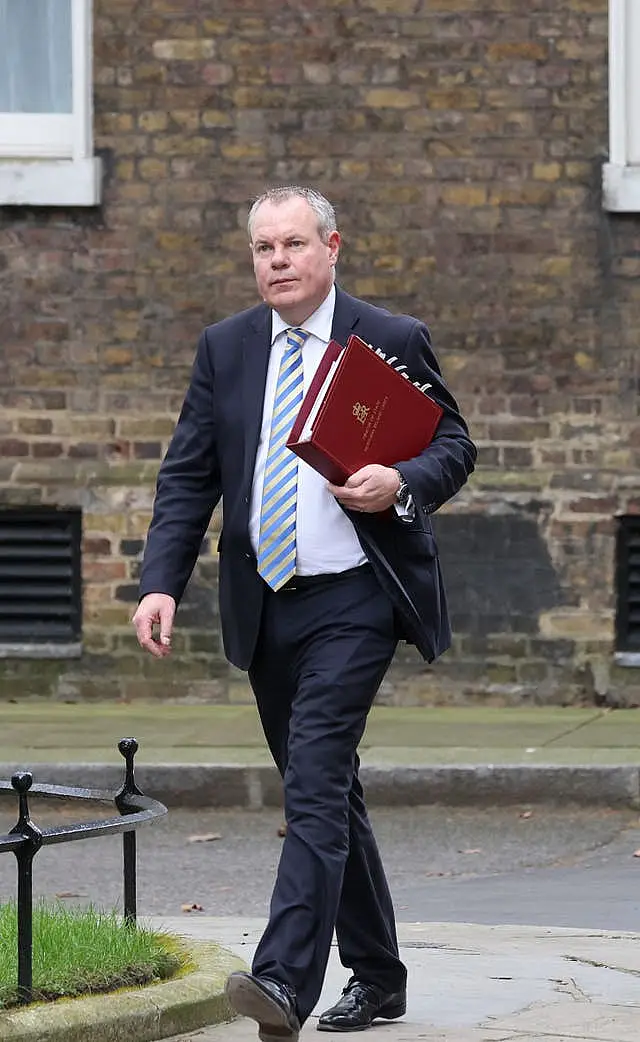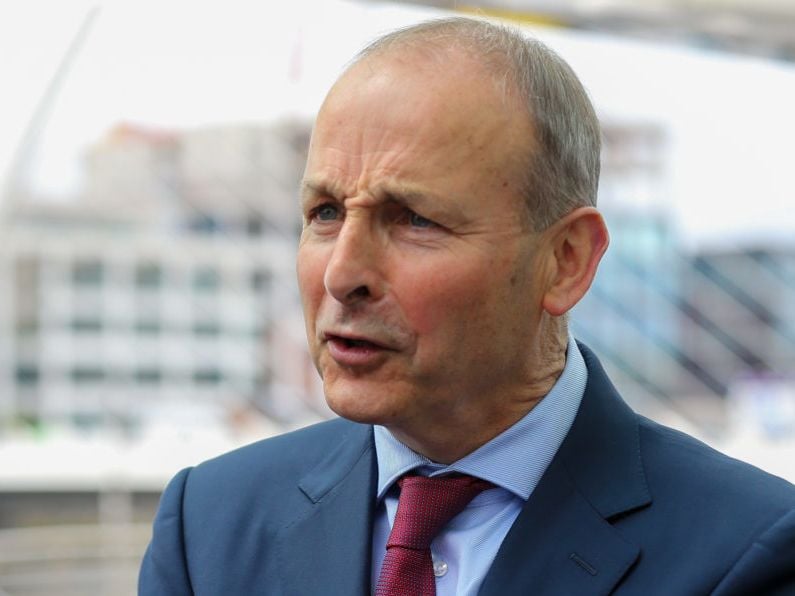By Cate McCurry, PA
Taoiseach Micheál Martin has said Britain’s plans to act unilaterally over the Northern Ireland Protocol would be “deeply damaging” and mark a “historic low point”.
Addressing the European Parliament, Mr Martin said the UK government’s proposed legislation to override key parts of the Brexit deal would be “to the benefit of absolutely no-one”.
The Taoiseach also said during his visit to Strasbourg that he disagrees with the UK government’s handling of the protocol and accused it of failing to engage with the EU.
His comments come amid a stand-off between the UK and the EU over the protocol, an agreement designed to avoid a hard border on the island of Ireland but which instead created fresh checks on trade between Great Britain and Northern Ireland.
Mr Martin said: “I have said many times that there are solutions to practical problems under the protocol if there is a political will to find them.
“But that requires partnership. It requires the UK Government to engage with good faith, seriousness, and commitment.
“Unilateral action to set aside a solemn agreement would be deeply damaging.
“It would mark a historic low point, signalling a disregard for essential principles of laws which are the foundation of international relations.
“And it would, quite literally, be to the benefit of absolutely no-one.
“Without a spirit of partnership, there would have been no peace process in Northern Ireland.
“Without trust, without engagement, without a willingness to see things from the point of view of others, there would have been no Good Friday Agreement, no quarter-century of peace in Northern Ireland in which young people have been able to grow and to flourish as themselves.
“All of us in positions of leadership owe it to them not to treat lightly what was so hard-won.”
Watch the #ThisIsEurope ?? debate and my address to Plenary of the @Europarl_EN shortly.
Live: https://t.co/PYQgAs1KDp pic.twitter.com/LlkoymvsWl
— Micheál Martin (@MichealMartinTD) June 8, 2022
He added: “I disagree with the approach that the United Kingdom Government has taken in respect of dealing with the protocol and its failure really to engage and to engage in a substantive way with the European Union, and particularly the Commission and Maros Sefcovic."
British foreign secretary Liz Truss has said the UK intends to legislate to override parts of the deal on Northern Ireland, with the details expected to be announced in the coming week.
Opposition to that deal has seen the DUP block efforts to restore powersharing in the region.
Northern Ireland Minister Conor Burns said the legislation will be published soon.
He said the protocol has led to “ridiculously excessive” checks on goods moving within the United Kingdom’s internal market.
“We have been very clear with the EU that, if they can broaden the mandate, if vice-president of the Commission Maros Sefcovic can be given more room by President (Ursula) von der Leyen, the European Council, that we are absolutely determined and willing to engage with the EU to reach a negotiated settlement, that is absolutely in the best interest of both sides,” Mr Burns told RTE Morning Ireland.
“But the vice president has been very clear that he cannot move beyond the mandate of the proposals that he put in place last October and we have been clear with him that those do not go anywhere near far enough in achieving the goals the United Kingdom would like to achieve.
“We recognise the attractiveness of the protocol and the place that leaves Northern Ireland in, but the reality is that we have now got ridiculously excessive checks on goods that are moving within the United Kingdom’s internal market that will never go near the Irish Republic, that are absolutely no threat whatsoever to the integrity of the Single Market.”
Mr Burns also rejected Mr Martin’s assertions that the EU has and will continue to be flexible in its negotiations.
“That is not our lived experience from the conversations that we’ve been having with the EU over very many months,” the Conservative minister added.

“They talk of flexibility within the terms, within the constraints of the proposals they tabled last October. We have been clear with them that those proposals do not go as far as they would need to go to respect the integrity of the United Kingdom’s internal market.
“It’s a very, very simple proposition here. We’re simply saying the goods moving within our own country – with the exception of live animals, which we can see the need for checks on, obviously – the goods moving within our own country should move freely.
“They pose no risk whatsoever.
“We are very clear that the proposals that we will put forward, the legislation that we will put to Parliament, will absolutely be lawful and appropriate.”






